Mumbai is India’s financial capital and one of the most crowded cities in the world. Climate-related change issues have instead grown as cumulative ones that the city has to encounter and deal with: water erosions, extreme weather events, sea level rise, and even urban heat islands that lessen the city’s infrastructure and economy, as well as the public’s health. With such challenges, countless NGOs have mushroomed to demand environmental sustainability, community awareness, and policy reform.
This article examines the Climate Change NGO in Mumbai and their activities, impact, challenges, and the future of such organizations.
The Climate Crisis in Mumbai

Mumbai is a highly vulnerable region to climate change because of its geographical location, lying along the Arabian Sea, with a very long coastline. Over 20 million people are residing there, with many people in informal settlements that are easily affected by floods and other kinds of climate disasters. Some of the key challenges are:
- Rising sea levels: The scientists expect that most areas of the metropolis will be flooded after 2050, with ever-rising tides in oceans. Dharavi and parts of South Mumbai are severely prone to this.
- Increased Flooding: The behavior of the monsoons has become unpredictable and more catastrophic in some cases, bringing life to a grinding halt with significant loss in infrastructure. One of the worst floods in Mumbai occurred in 2005, where over 1,000 lost their lives and caused immense economic damage.
- Urban Heat Islands: The city is losing green cover due to this fast rate of urbanization, which is increasing the number of concrete surfaces. Therefore, it is hotter than any other area, and the rate of health problems due to heat stress rises.
Policy Responses
The Climate Action Plan for Mumbai was started in the year 2022. All climate change impacts will be covered under this broad umbrella, with both adaptation and mitigation included. It will mainly work on sustainable development of the urban platform, proper waste management, adaptation to renewable energy, and active engagement of the community.
Prominent Climate Change NGO in Mumbai
Grow Billion Trees Foundation

Overview: The Grow Billion Trees Foundation is an established environmental conservation institution in Mumbai that started with a strong belief in eradicating climatic change. To do that, it began through a plantation of re-establishing millions of trees, which it envisions should add up to its one billion plan for tree-planting.
Key Programs:
- Tree Plantation Camps: The organization conducts routine tree-planting activities with local communities, schools, and corporate volunteers. These campaigns not only focus on biodiversity but also reduce urban heat and purify the air.
- Grow Billion Trees is also involved in awareness programs. In such programs, it teaches the public how trees can help in fighting climate change and increase biodiversity. It also collaborates with schools to raise environmental stewardship awareness among children.
Impact: From the moment of its launch, Grow Billion Trees Foundation successfully planted millions of trees in vast areas across the city and sub-urban region of Mumbai. This contributed hugely towards increasing the green cover within urban landscapes that eventually created a much more sustainable environment for generations ahead.
Website: https://growbilliontrees.com/
Green Yatra
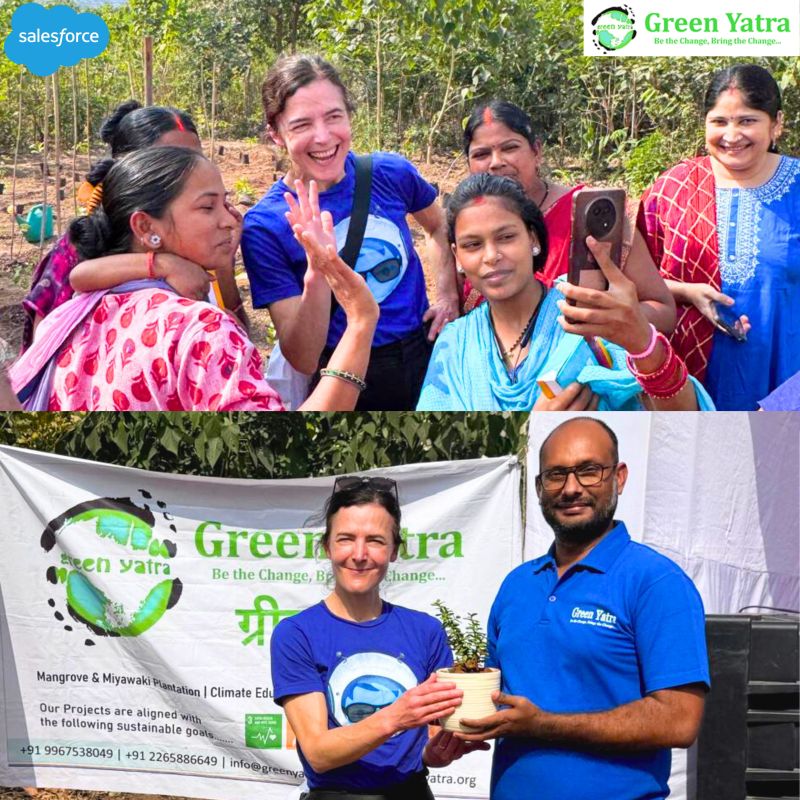
Overview: Established in t008, Green Yatra fights environmental issues based on scientific inquiry and community action. The organization deals with creating a sustainable environment by involving citizens in other environmental activities.
Key Programs:
- Urban Forest Development: Green Yatra created urban forests with the Miyawaki method, dense planting of native species, and turned a dumping yard into an urban forest, which became very lush green and bore over 60,000 saplings in Navi Mumbai.
- Restoration of Local Water Body: The NGO aims to rejuvenate the neglected and polluted local water bodies. Its efforts involve the cleansing of lakes and rivers with proper awareness towards the conservation of water.
Impact: Green Yatra seeks the involvement of community people in their work. The practice not only makes the people aware but also inspires the community towards owning their space.
Website: https://www.greenyatra.org/
Earth5R
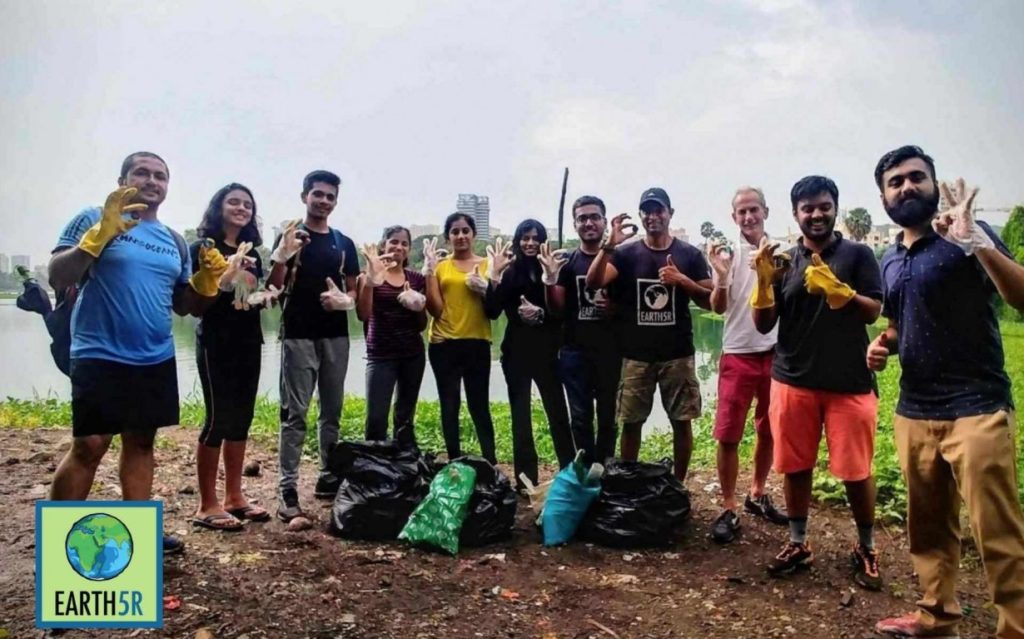
Overview: Earth5R is a global environmental organization recognized by UNESCO, focusing on sustainable development and education. Its mission is to empower communities and businesses to shift towards a green economy.
Key Programs:
- Waste Management Programmes: Earth5R conducts workshops on segregating waste and recycling practices meant to reduce plastic waste in urban areas. Instead of this, they also promote composting as a more sustainable solution for handling waste.
- Sustainable Livelihood Programmes: The organization works with disadvantaged communities to create a sustainable livelihood, keeping with the agenda of environmental conservation. These involve training on these eco-friendly practices.
Impact: Earth5R conducts outreach to schools and colleges by conducting workshops that inform students of sustainable practices and encourage them to become influencers for environmental change. Its programs work to create a responsible attitude towards nature in young minds.
Website: https://earth5r.org/
Vanashakti
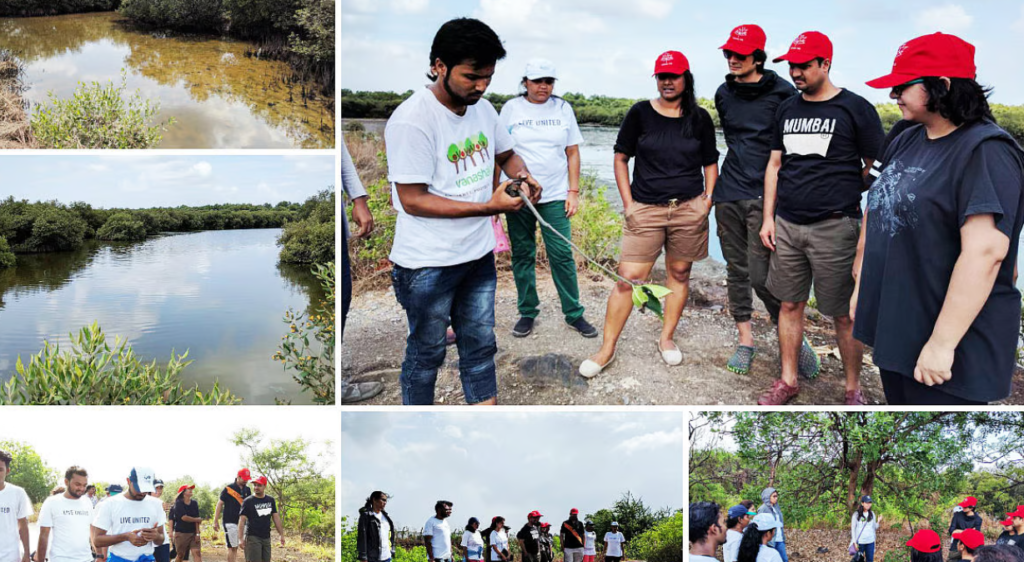
Overview: Vanashakti has been safeguarding forests and water bodies and providing education for good waste management practices. The mission is focused on conservation coupled with community education.
Key Programs:
- Forest Conservation Programs: Vanashakti undertakes these programs to study and protect the forests in its locality by planting more trees and involving the nearby communities in this action for sustainable endeavors.
- Beach and River Clean-Up Campaigns: The group initiates frequent clean-up drives on beaches and riverbanks to eradicate pollution. It also holds seminars on proper waste disposal methods.
Impact: Vanashakti campaigns for the development of policies for safeguarding the environment in the local government. It encourages the introduction of more concrete regulations regarding waste management and pollution controls. In these efforts, it is working towards a cleaner urban city.
Website: https://vanashakti.org/
Bombay Natural History Society (BNHS)
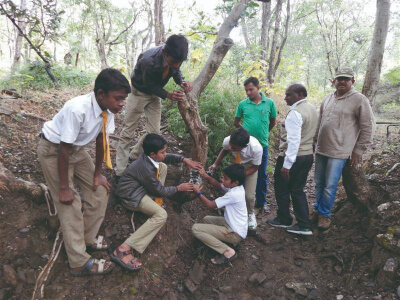
Overview: BNHS was established in 1883 as one of India’s oldest NGOs working towards wildlife conservation and environmental education. The research they have done on biodiversity helps to formulate strategies for the preservation of the entire country.
Key Programs:
- Research Initiatives: BNHS conducts research on various species and ecosystems within Mumbai’s diverse habitats. Their studies contribute valuable data for policy formulation regarding conservation efforts.
- Community Programs: BNHS reaches out to local communities through educational programs meant to create awareness of biodiversity conservation. Citizen science projects to monitor local wildlife, which instill the feeling that citizens are responsible towards nature.
Website: https://bnhs.org/
Clean Mumbai Foundation
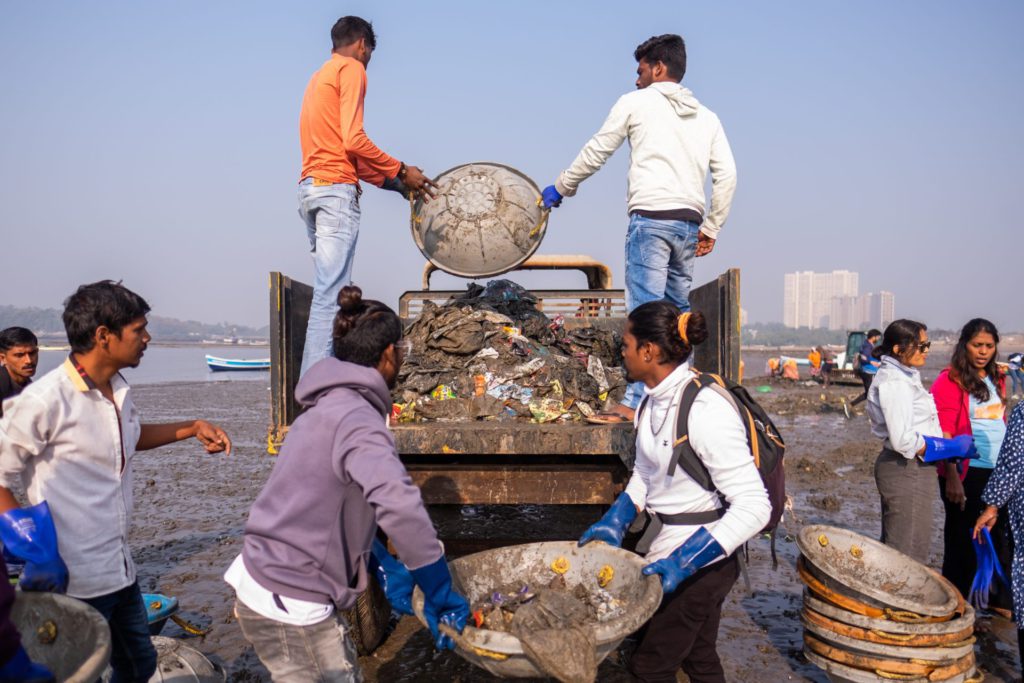
Overview: The Clean Mumbai Foundation is working toward improving urban sanitation and cleanliness while raising awareness for issues affecting the city environment.
Key Programs:
- City-Wide Clean-Up Campaigns: The organization undertakes mass cleaning drives across various localities in the city of Mumbai, where garbage is cleared within 24 hours of complaint.
- Clean Mumbai conducts awareness programs, such as workshops in which people are educated about proper waste disposal methods and the importance of maintaining cleanliness in public areas.
Impact: The citizens engaged in the cleaning process develop a community spirit as well as a sense of environmental responsibility by Clean Mumbai. The people are motivated to participate in activities to maintain cleanliness around them.
Website: https://www.facebook.com/cleanmumbai/
World Wildlife Fund (WWF) India – Mumbai Chapter

Overview: The WWF operates around the world, and an active WWF can be found in India in the form of a well-settled Mumbai chapter. WWF focuses on wildlife conservation and the impact of climatic changes through various initiatives.
Key Programs:
- Conservation Projects: WWF India works on a range of projects that conserve threatened species and habitats, focusing on the ecological regions of Mumbai.
- Climate Change Awareness: The group runs campaigns raising awareness on how climate change is affecting biodiversity, at the same time advocating for policies that help in sustainable development.
Impact: WWF is reaching out to schools, communities, and businesses by engaging them with educational programs in biodiversity conservation in order to combat climate change.
Website: https://www.wwfindia.org/
Challenges Faced by NGOs
Although NGOs in Mumbai have significantly impacted climate change efforts, they are still facing some challenges that will limit their operations:
- Limited Resources
Organizations mostly bank on donations and grants that sometimes tend to be sporadic:
- Limited Scope: Sustenance will be limited, hence limiting the scope of the project. In some instances, projects might be closed due to lack of sustenance.
- Limited Resources: Organizations face competition with other NGOs from other different organizations, thus making it challenging to get funds.
- Public Awareness Gaps
Raising awareness of climate change continues to be an uphill task:
- Misinformation: The diffusion of misinformation leads to public apathy or skepticism over climate issues.
- Engagement Levels: Some sections of society—especially the vulnerable groups—prove difficult to engage in, mainly due to socio-economic barriers or a lack of information.
- Bureaucratic Obstacles
It is not easy for NGOs to negotiate the bureaucratic procedures for collaboration with the government departments:
- Regulatory Issues: Projects take more time due to the requirements of adhering to regulatory bodies.
- Policy Gears: Unstable policies and decisions from the government make a project uncertain during its period.
Future NGO in Climate Change
In Mumbai, with such a reality about climate change, the role of NGOs is inevitable in achieving a sustainable future.
- Future Funding for NGO’s Climate Change
Long-term projects require sustainable funding from diversified sources:
- Crowdfunding platforms: Increasingly, organizations are leveraging crowdfunding as a means of raising funds with the opportunity to interact with a broader population.
- Grants from International Bodies: Grants from international bodies focused on climate action can be a source of additional funding.
- Increased Collaboration
More effective strategies will be achieved through strengthening partnerships among various stakeholders.
- Public-Private Partnerships (PPP): The cooperation between government authorities and private entities can help share resources for bigger-scale projects.
- Inter-NGO Collaborations: Joint activities among various NGOs will help increase the impact by aggregating resources and expertise.
- New Solutions
There is a need to embrace technology for tracking environmental changes:
- Data Analytics Tools: Using data analytics will allow better tracking of sustainability goals.
- Technology-based Urban Planning Tools: Technologies can help curb some effects of climate change if they are introduced in urban planning in the appropriate manner.
At this time, in Mumbai, grappling with the all-around challenges due to climate change, the role played by NGOs is increasing manifold. As such, in this city, various organizations are working vigorously through community participation, advocacy programs, educational endeavors, and inventive solutions toward bringing about a greener future.
It is because of the concerted efforts by different stakeholders, including the government agencies, the corporate partners, and the local community, that present-day Mumbai can take up pressing challenges for itself while building resilience across communities in Mumbai.
In empowering individuals with knowledge and resources and advocating for systemic changes at all levels, these NGOs do not just answer immediate environmental problems but present the gateway to a greener future that will ensure sustainability for generations.
Leave a Reply